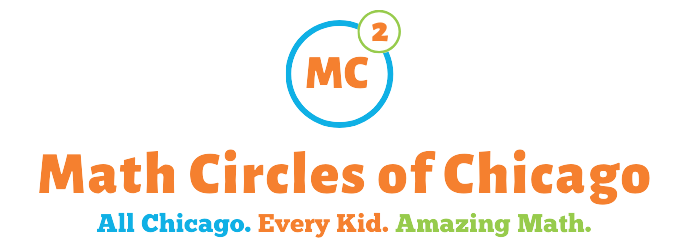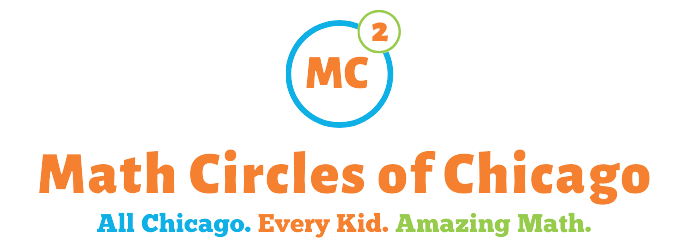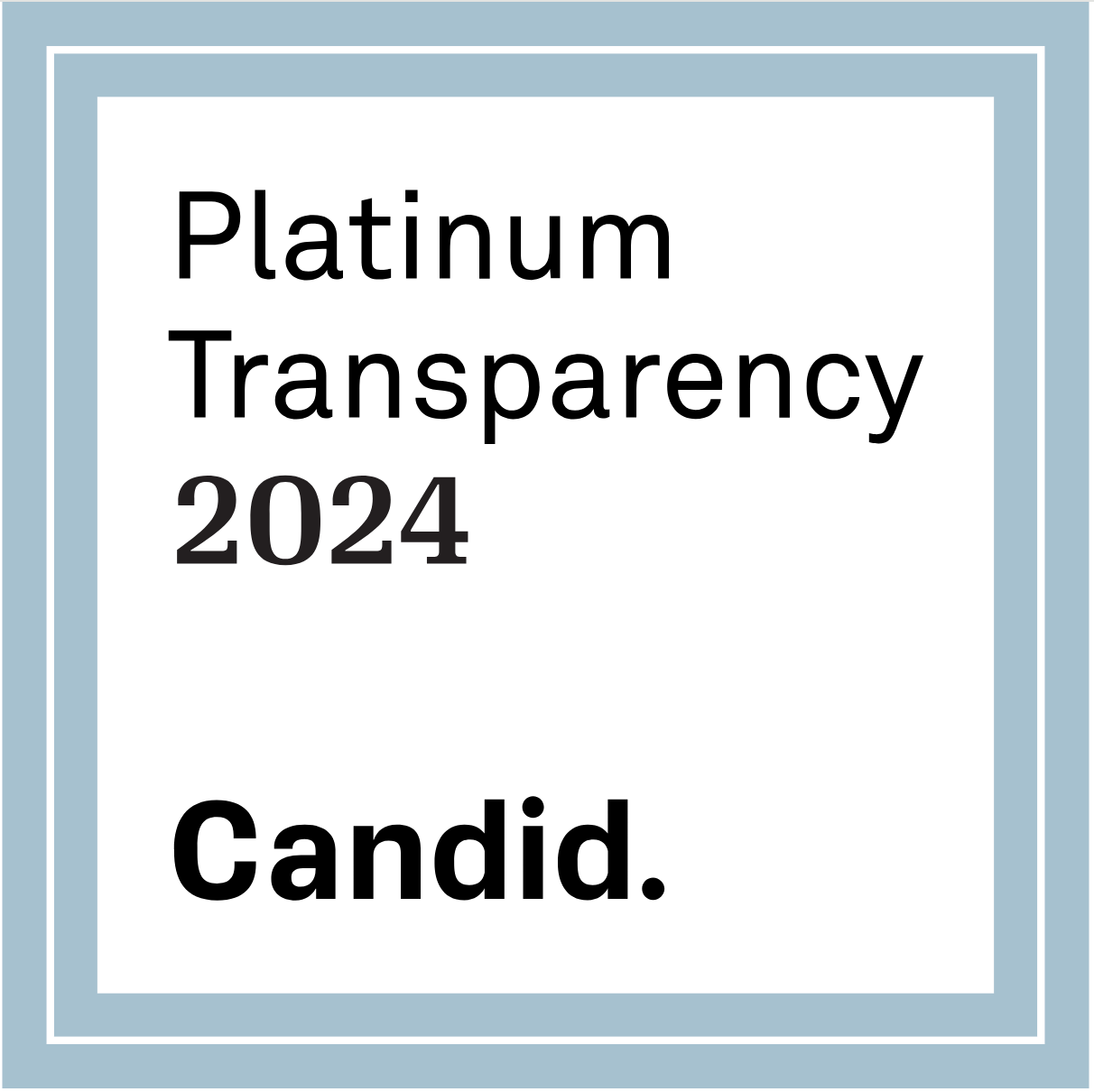Our Blog Posts
Math Circles of Chicago invites you to read our blog. Math Circles of Chicago can be reached at info@mathcirclesofchicago.org.
Current Blog Posts

When did you get started with Math Circles of Chicago? My parents found the program back when I was in fifth grade. I knew I liked math, and I wanted to explore it, but I just didn’t know how. A lot of math programs are about being quick at math, but math circles are a great way to take an hour or two and really focus on one topic. You were involved with QED, our math research symposium, from a young age. What was that experience like? When I got involved with QED, that especially helped me. I did some pretty cool research just as a sixth grader. It maybe wasn’t the best research I’ve ever done, but I found that it was a lot of fun. I learned from that experience that I wanted to focus on questions and spend months thinking about them. Now I’m studying material science engineering at MIT, but this initial QED experience taught me about the kind of atmosphere I was looking for in college. Our research pathway also encourages students to go to other math programs during the summer. Did you have an experience at a summer math program meeting other young enthusiasts? Math Circles of Chicago encourages you to do more than just pure math and writing things on a board, they want you to use your hands to understand a problem and work it out with other people. I did an international math camp in Poland called Math Beyond Limits. It was taught by math professors with really unique teaching styles, and gave me a lot of perspective on how I wanted to teach. After you finished high school in Ukraine you returned to Chicago to work as a High School Assistant (HSA) in our education pathway. What inspired you to apply for this teaching position? I was tutoring middle school students in a math contest focused camp. This gave me experience working with students of that age. One of the rounds of the contest gave students problems to solve, but they had to present their solutions orally rather than just a pure test. We were allowed to ask them leading questions if they were close to an answer but not quite there. When I saw kids have really smart ideas that they formulated in their own words without formal language, it was really exciting. Math Circles of Chicago encourages students to do the same thing and have agency and ownership of the mathematical ideas they are discovering.
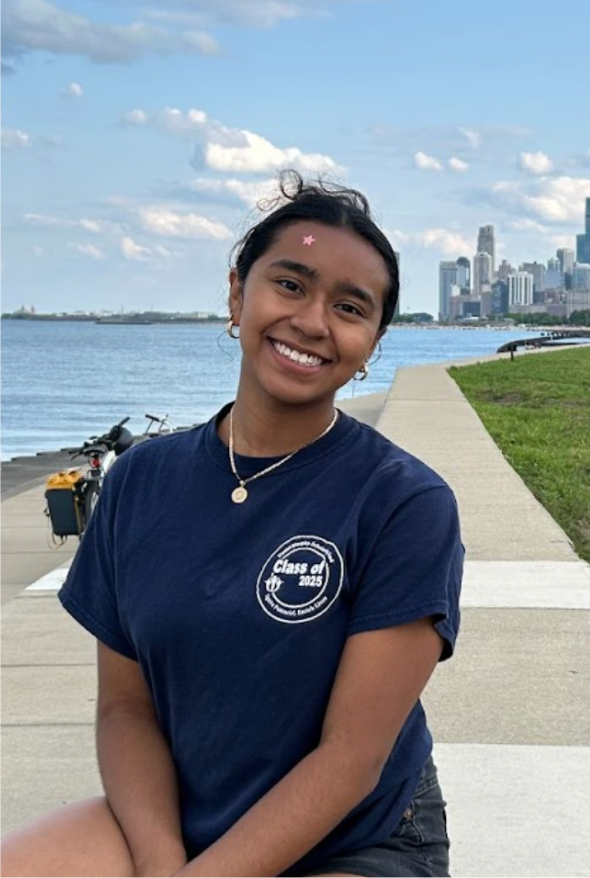
When did you get started with Math Circles of Chicago? I began when I was in seventh grade, online during the pandemic, when a teacher at my school brought it up. I was kind of struggling with math in school back then. I was very pleasantly surprised: I thought it was going to be just another math class for me to stay on track with the same things we were doing in class. When I saw it was more like puzzles and brainteasers I thought “oh, this is interesting!” and it worked my mind in a different way. I honestly didn’t like math very much before I started taking those math circles. What impact did those math circles have on your attitude towards math as you moved from middle to high school? I learned that there’s more to math than just what is being taught in the classroom. It’s interesting how we call both of these things math: the boring subjects that I didn’t like in my traditional class and the fun things from math circles. It helped me be more open-minded, and to look for the interesting angles in subjects I thought I didn’t like. What was most impactful about your experience in the education pathway working as a High School Assistant? Kids see the world a different way, and they all approach problems differently. The 3rd and 4th graders I taught found different ways to solve the problems than I did. As I grew up, my schooling taught me to focus on mostly one way to see a problem, but working as an assistant opened me up to more viewpoints, either from the students or my lead teacher, Ms. Smith. What did you learn about being an educator? Growing up I always wanted to be a teacher. Being an HSA gave me a sense of what it’s like, and I realized it’s a really challenging job. It’s something I wrote about on my extracurricular resume for college applications. I want to keep working as a sub when I’m in college; lots of schools need volunteers in classrooms and that’s something that I want to keep doing in Wisconsin. This experience fueled my passion for teaching more!
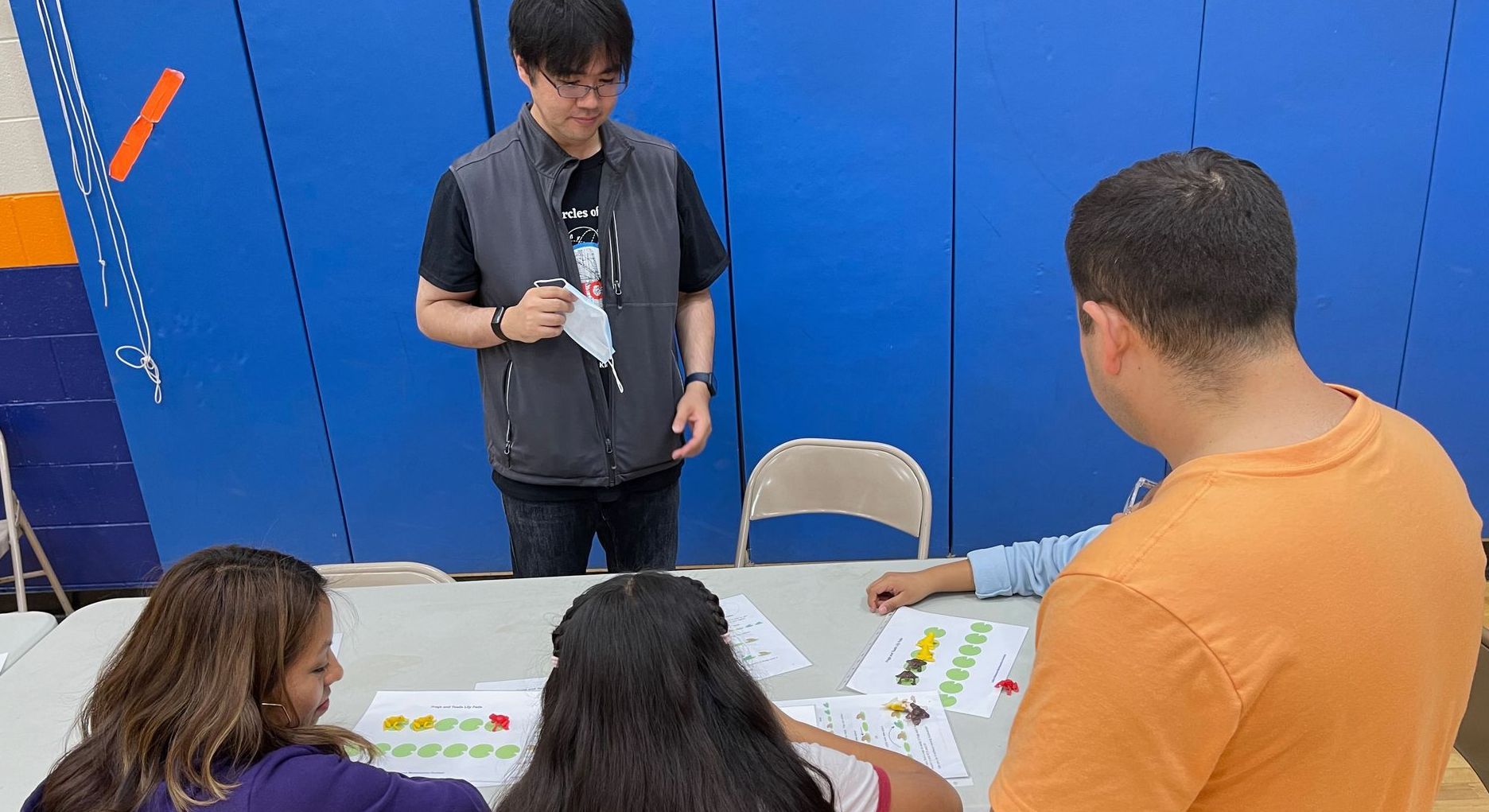
Every once in a while we're lucky enough to get a tenured professor to lead math circles. What's even more unusual is when that professor represents MC2 and travels around the city to run math festivals at Chicago elementary schools. Keigo Kawaji recently won the The Center for Learning Innovation Digital Teaching Innovation Award at the Illinois Institute of Technology. He's also MC2's Teacher of the Month! 1) How long have you worked for Math Circles? I have been a member of our Math Circles since 2019. 2) What made you start working for Math Circles? I was part of the math circles organization in my hometown through high school. By my high school senior year, I got to serve teaching in their programs, this then led to my first paid positions in teaching at summer math camps. So it has been quite natural to join our Math Circles of Chicago once I became an educator here. 3) Why do you teach? I have been inspired by mentors who have guided me to this nice recognition. Influenced by three such mentors during my high school years. So I teach to pay forward. (And thank you Steffi, Tom, and Richard). 4) What is your favorite thing about teaching? I see teaching as my own means of performing music, or creating an artistic piece (though I am good at neither). As a college professor, I was just recognized at my home university (Illinois Tech) for my teaching innovations in both digital and beyond digital platforms. Sharing these teaching innovations with similarly minded educators is truly rewarding for me. 5) What is something you wish more parents knew? There is no such thing as the 'only way'; there are many ways to solve a problem. Oftentimes, in hindsight, we realize that this was the only way we knew. This offers some food for thought. 6) What is something you want people to know about Math? When attempting to solve a challenging problem, start by finding one solution. Then, sometime later — or perhaps someday — try exploring a different, alternative solution. 7) How has Math Circles impacted your teaching career and your perspective as an educator? For the past 7 years, I have met many fellow educators, parents, and students through the Math Circles. In fact, I recently tried to count how many, and realized that I connected with almost one thousand people in the greater Chicago area community. I now wonder how many readers here and I might have already crossed paths (I'd be honored!). For each connection that I have made, I have grown as an educator. 8) Should Pluto be given back its title of planet? In fact, I do not know. I am curious as to what sets of rules should be used to define inclusion as planets. Maybe there are more than one defined set of rules for inclusion. And it is okay to say I don't know.

Summer Math Preview: High School For high school students interested in our two weeks of summer programs at Benito Juarez high school , here's a preview of the math content! What is Category Theory? Perhaps it's best to hear about the subject from your instructor, Dr. Eugenia Cheng [ watch until at least 8:25] :
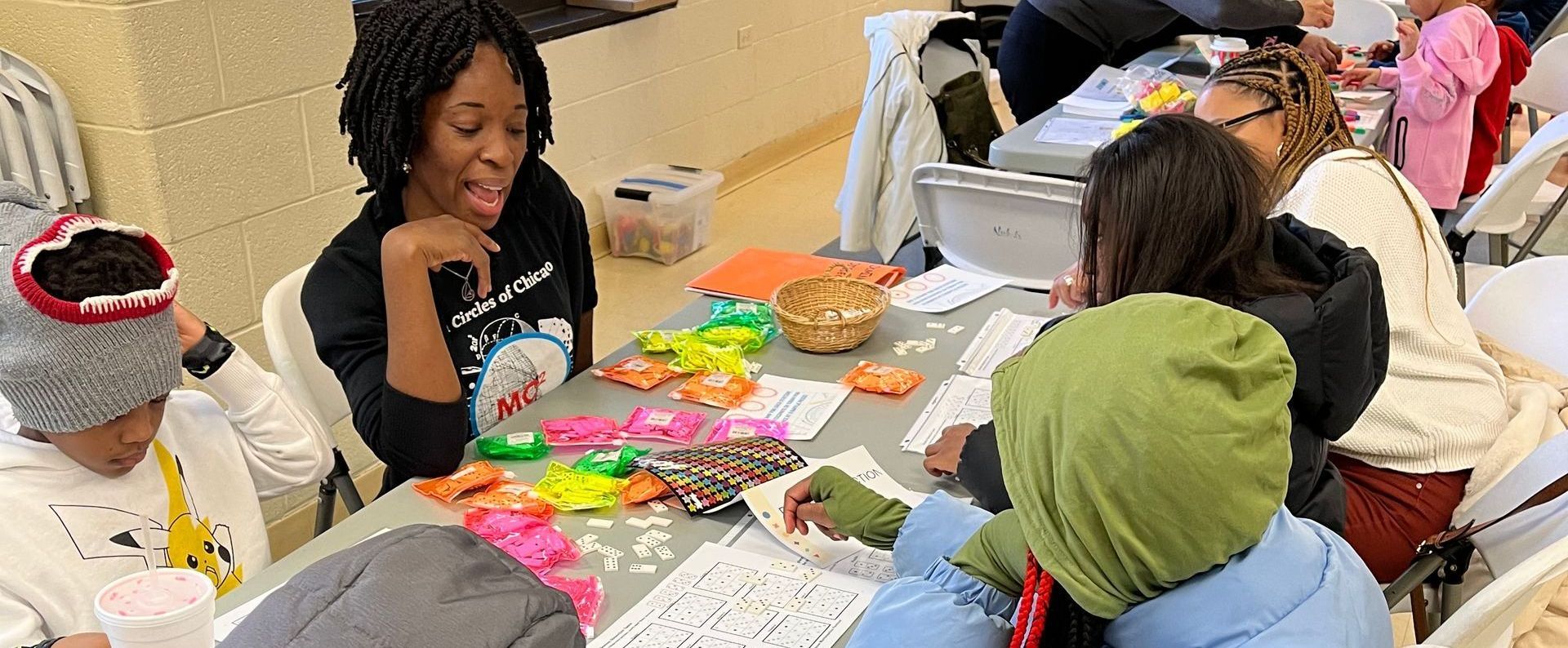
In February we interviewed Louisa Shannon, who leads an MC2 After School Program at Murray Elementary School and who has been a lead teacher at MC2 summer camps, both at Back of the Yards and in her own school. She's now in her 4th year at math circles! 1) What made you start working for Math Circles? I started working for Math Circles after participating in a Formative Assessment Lesson (FAL) Professional Development Cohort that Doug O'Roark co-organized during virtual learning. 2) Why do you teach? I teach because it is a vocation and a privilege. Being entrusted to provide equitable access, cultivate identities, and prepare community members is an honor of which I aspire to be worthy every day. 3) What is your favorite thing about teaching? Facilitating and witnessing a Eureka moment of clarity when someone synthesizes the pieces of information into a new understanding that they take with them as far and wide as they wish. 4) What is something you wish more parents knew? I wish more parents knew how resilient, capable, creative, and joyful children can be when we empower them to struggle with challenging tasks they find interesting for knowledge's sake. 5) What is something you want people to know about Math? Regardless of our previous academic performance, we are all math people. Math is fundamentally about exploring and solving problems that help us identify patterns and understand relationships. Doing math cultivates problem-solving. Problems are growing exponentially; we need as many problem-solvers as possible. 6) How has Math Circles impacted your teaching career and your perspective as an educator? Math Circles has challenged me to seek, promote, and expect joy for every learner. It has helped me recommit to a career as an educator. 7) Should Pluto be given back its title? Although nine is divine, eight is pretty great! I think Pluto should remain a dwarf planet.
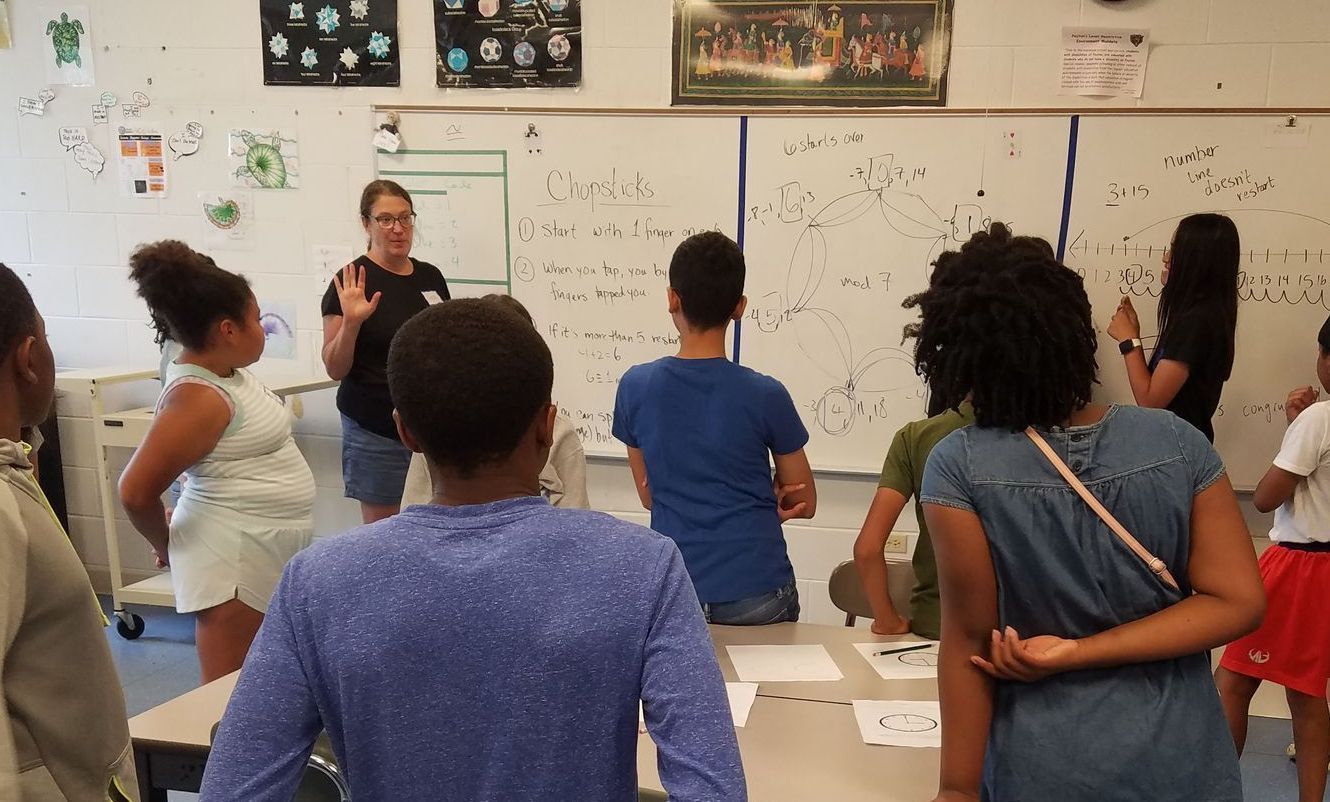
In January, we interviewed Lisa Cash, MC2's most experienced teacher. Lisa led our first ever After School Program at Goudy Elementary (which continues to this day), and also leads sessions at our Lane Tech Hub, along with summer sessions at Payton HS. 1) What made you start working with Math Circles? I wanted to do interesting and engaging math with my students after school. However, I started teaching at the Pilsen Hub first. I brought it to my school later and have been running it there ever since. 2) What is something you wish more parents knew? I hope parents realize how much their enthusiasm shapes their child's experience. It is a joy to teach Math Circles because of this. 3) How has Math Circles impacted your teaching career and your perspective as an educator? I have spent the last 7 years learning and growing with Math Circles. Working with the team at Math Circles has broadened my ability to help students think deeply about math.
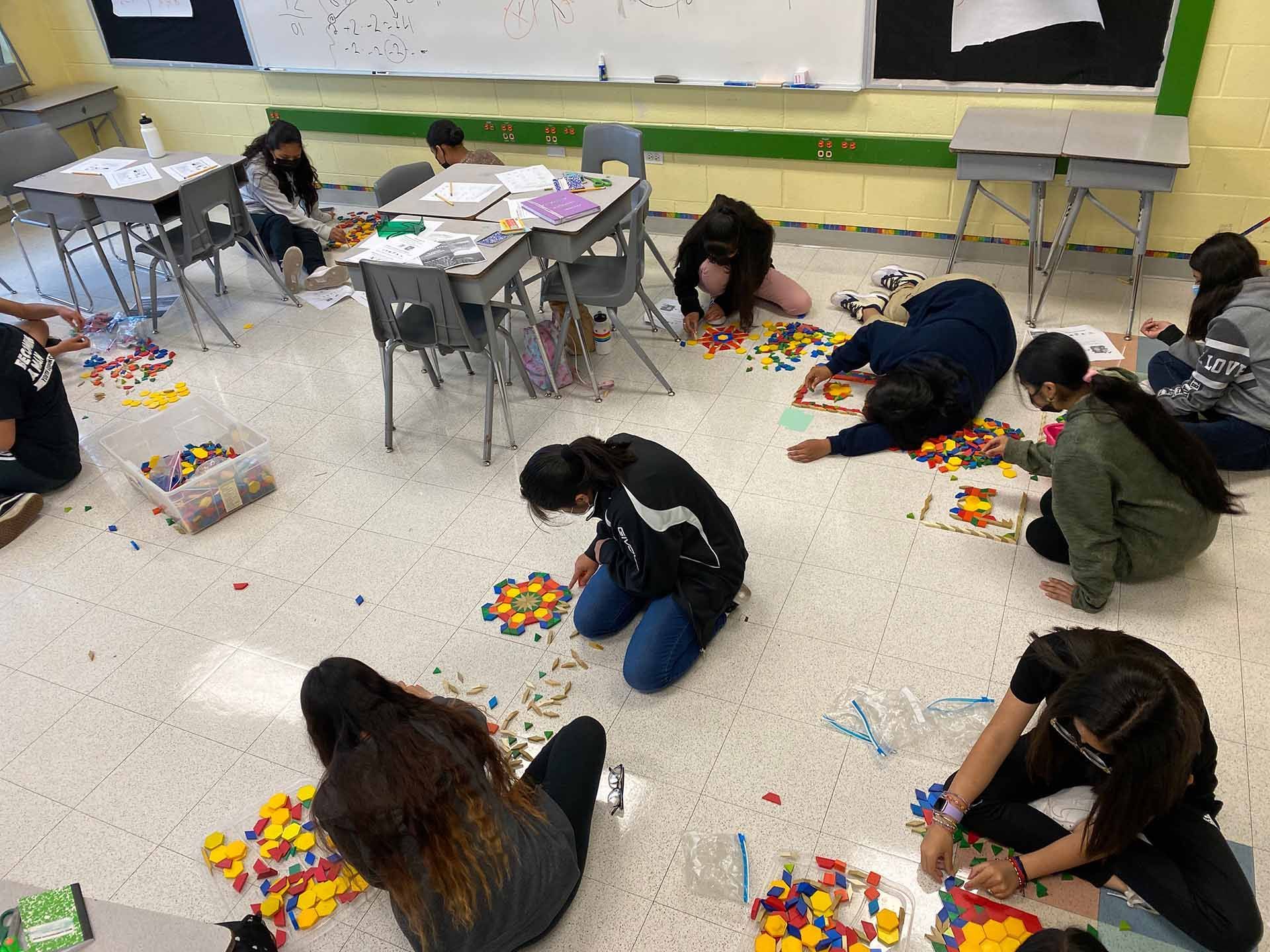
Greetings MC2 Folks! While it still feels very much like winter here in Chicago, many families are beginning to think about their plans for Summer math enrichment. There are math programs all over the country, some free, some not. A few admit everyone they can fit, others ask applicants to complete an application, write an essay, or submit a math problem set. The table below can help you make a choice. Some things to note: Camps in Chicago -- MC2, UIC, and UChicago -- tend to have later deadlines than national camps, and the UIC and UChicago websites are usually updated in March or April. If you are on MC2's mailing list you will get updates. If you need any advice, email us at info@mathcirclesofchicago.org or hit the 'Contact' button on this website!
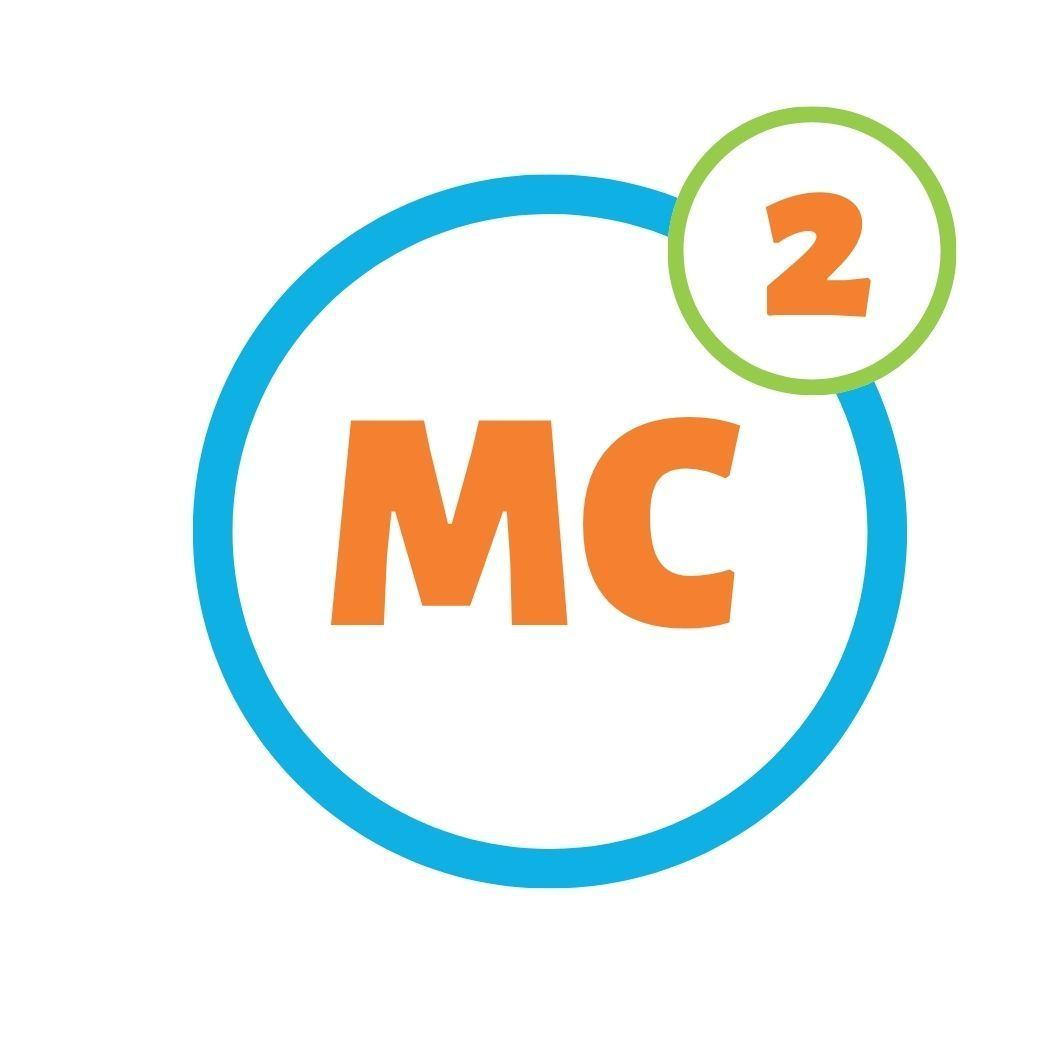
Registration Information and Forms Update! The next time you login to your MC2 account to register your child for an MC2 session, you'll be asked to update some information about each child you enroll, and complete our standard forms. Updating information about your student--what's new/different: You'll be asked to give your child's date of birth. We're now collecting gender and race/ethnicity information here (which is optional) rather than having a separate registration form (this will reduce the number of signed forms we collect by one). If your child is in high school, we ask for your child's school (with our old system this information was often not updated). Form notes: We know that most families have completed our forms previously; we're asking you to do so again, but once you've done so that should be the last time (or at least the last time for several years)! The CPS data form is an exception--it will need to be completed once a year. Families are free to not share their child's CPS data (and, of course, some of our students do not attend CPS); if your child does not attend a CPS school or if you prefer to not share their data with MC2, simply answer 'no' to the two questions on the form. Of course, we would encourage you to answer yes if you can, as it's helpful for us to collect as much information as possible so we can analyze the overall impact of our programs. We never share individual student data with outside groups . Individual student data is also not shared with our teachers. We only use collective student data for evaluating our programs; we do NOT use individual student data for any purpose other than to calculate these averages.






